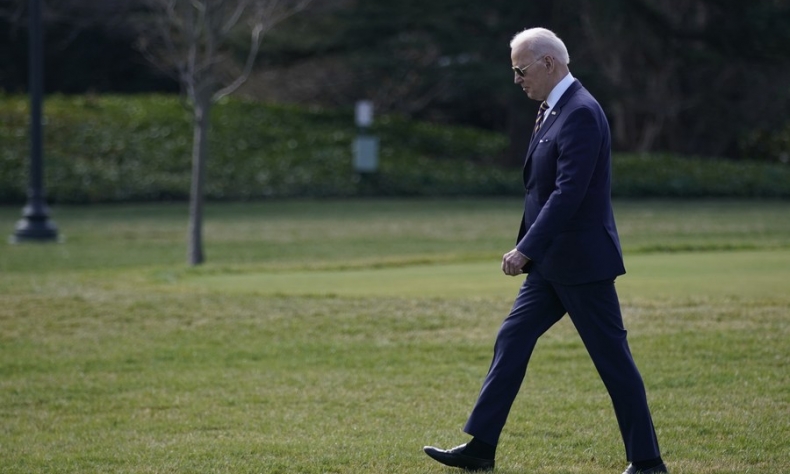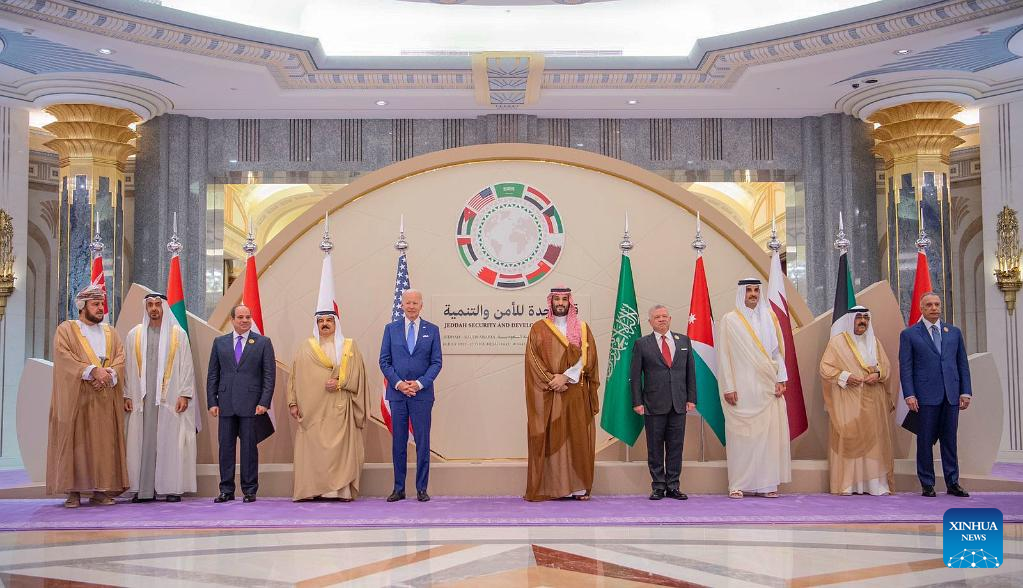A Wild Goose Chase

Washington is going against the worldwide common aspiration by trying to use the Middle East as a stage for geopolitical games among major powers.
The Middle East appears low on the United States’ list of priorities recently, with President Joe Biden and his administration having neglected the region for over a year since they took office in early 2021. Finally noticing the weeds that have begun to grow, Biden embarked on a jam-packed whirlwind foray to plant U.S. flags and repair the damage done to what they see as their other backyard.
Despite Biden’s shouting from the rooftops that his tour marked the beginning of a new chapter in relations, in reality, his clear preoccupation with maintaining influence and single-minded pursuit of political gain revealed he was still faithfully reading from chapters written in decades past, and that Washington still regards countries in the region as tools to be abused and abandoned at will.
“The four-day trip has highlighted Biden’s policy failures in the Middle East,” commented The New Yorker. That Biden’s first visit to the region since he took office received such a lukewarm response once again demonstrates U.S. unilateral dominance is unwelcome.
On the day of Biden’s arrival in Israel on July 13, the U.S. Labor Department announced the country’s consumer price index soared 9.1 percent in June over the same period of 2021, the biggest yearly increase since 1981, with nearly half of the increase due to higher energy costs. The numbers not only sent Biden’s approval ratings plummeting, but also further explained why he has tried so hard to push Saudi Arabia and other Gulf states to pump more oil—to ease inflationary pressures at home.
The U.S. media has also pointed out that during the Jeddah Summit for Security and Development, hosted by Saudi Arabia and attended by leaders of the Gulf Cooperation Council, Egypt, Iraq, Jordan and the U.S., Biden tried to incite regional countries to counterbalance Iran and Russia, and peddled the idea of an anti-Iran military bloc, which many dubbed the Middle Eastern NATO.

No matter how the U.S. coaxed and cajoled, regional countries responded tepidly. Biden neither succeeded in his bid to form a regional military alliance nor convinced Saudi Arabia, the world’s largest oil exporter and the leading producer within the Organization of the Petroleum Exporting Countries, to act immediately and raise its crude output.
Saudi Arabia can’t boost its oil production any further in the medium term, Saudi Crown Prince Mohammed bin Salman said during the summit. According to analysts, the country won’t deviate from its established energy and foreign policy solely to favor U.S. interests. The Saudi Government has announced it will not increase oil production unless the market is short of supply.
The deeper reason, of course, is that the world is changing so dramatically that U.S. power is waning. And Washington’s hegemonic thinking and confrontational approach counter regional countries’ pursuit of development, cooperation and peace.
The world now faces major challenges caused by COVID-19 and geopolitical conflicts. The international community must focus on reviving the world economy, achieving food security and safeguarding public health. Washington is going against the worldwide common aspiration by trying to use the Middle East as a stage for geopolitical games among major powers.
Biden’s stance of pseudo-neutrality in Israeli-Palestinian issues was exposed again during the visit, sending Palestinians into the streets to protest. The U.S. “ignoring the simmering tension, violence and injustice that dominate the Israeli and Palestinian reality will further the continuing deterioration of the status quo between the parties,” The Washington Post said in a recent opinion piece.
It is no surprise that the trip was a flop. Think of Biden’s predecessors: George W. Bush, who vowed to bring peace to the Middle East, and Barack Obama, who, on his first tour, also promised to rebuild U.S. bridges with the region. But what did they actually achieve? The U.S.’ cavalier meddling in the affairs of the Middle East, waging wars and imposing unilateral sanctions, have caused massive civilian deaths and displacement of people. Its true face as a troublemaker has become even clearer to the region’s people.
Amid rising global challenges and after decades of war and strife, what people in the Middle East truly want is peace, security and development. It seems the U.S. can bring none of these.
 Facebook
Facebook
 Twitter
Twitter
 Linkedin
Linkedin
 Google +
Google +










